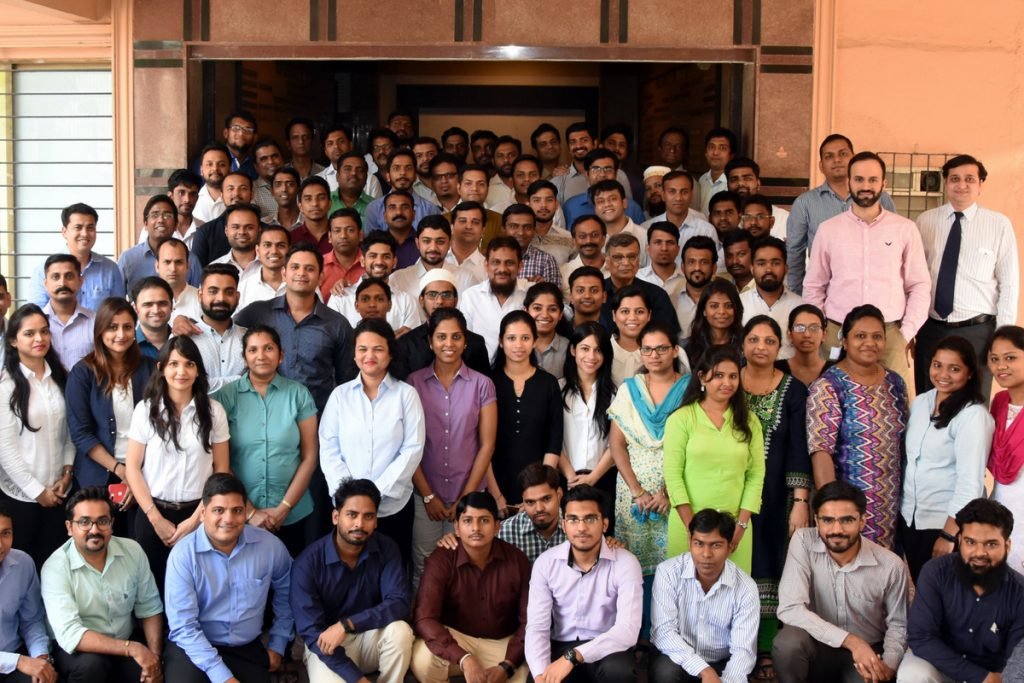What do we look for in a Life Engineer?

There is no other way to explain Fabtech’s purpose.
Why do we, a pharmaceutical engineering solutions company, call ourselves Life Engineers? If you have been through our website or spoken to one of our 600 + Life Engineers you’ll see a common thread running through our DNA. None of us knows how to give up. Give up on projects, give up on clients, give up on ourselves. We do not know how.
Each of us believes in our shared purpose of making medicines accessible and affordable to nations and people that need them the most. And everything we do as individuals and as a team is directed at delivering this purpose that is reflected in our strategy, our approach and our objectives. We consciously evaluate our performance through a broader lens with the 3BL (Triple Bottom Line) approach to creating value – economic benefits to our customers, environmental benefits for a greener planet and social benefits to people everywhere.
So who is a Life Engineer?
A Life Engineer is one who holds themselves up to a higher standard – someone who inspires not only colleagues and team members but also customers and partners. A Life Engineer is respectful of everyone, irrespective of station, status or seniority. Someone who listens. Who is resilient. A Life Engineer solves problems, is open to different perspectives and goes beyond the brief when called for to deliver customer objectives. Most of all a Life Engineer is a team player.
Over the years we’ve developed a hiring methodology that works for us and this post talks about what we look for when recruiting new team members to join our ranks.
The job landscape has undergone a massive evolution in the past decade or so and the evolution continues at a fast clip even today. Disruptive technologies are changing the very way we work. New fields of employment are being created every year.
As an employer, we do not only want to know if you are qualified for the role you’re applying for but if you are a good fit for our culture, our purpose and our team. Your personality plays a significant role in our evaluation.
We encourage the entrepreneurial spirit in all our people, whether they are running a division or just starting out in the organisation. We deliberately seek out future leaders and groom them for success. A lot of our alumni go on to start their own companies, and successfully. In the words of Steve Jobs, our job is not to be easy on our people. Our job is to take these great people we have and push them and make them even better. Life Engineers who live our purpose with every action. And we have several examples that demonstrate our commitment to nurturing future leaders.
Another quality we keenly look for is individuals who question status quo. Not for the sake of being merely contrary but for the greater good. Some employees go along with everything their manager says, without question. While these people may be excellent for the occasional ego boost, ultimately, leaders need team members who will challenge the status quo because it’s just better for business.
I remember our Managing Director, Aasif Khan telling me early in my career at Fabtech. “I don’t want “Yes” men. I want people who will not be afraid to stand up for what they think is the right thing for the company.”
When we interview, we look beyond the resume. Technical capabilities can be upgraded with the right training programs. What cannot be taught are core skills like active listening, a drive for results or even resilience in the face of adversity. To us, these are far more valuable than only technical expertise.
If you are hired to join us you aren’t just joining an engineering company, you’re joining a mission to save lives. And you’ll learn a great deal all along the way.
Whether you are applying for a role at Fabtech or any other organisation, just remember to be true to yourself. If you are a great fit it will be apparent, if you aren’t that will be too. Don’t force it. The most important thing to remember in an interview is that it is two sided – you’re interviewing us as much as we are interviewing you.
Categories
Recent Posts
Subscribe
Never miss a post from Fabtech. Sign up to receive updates direct to your inbox.
